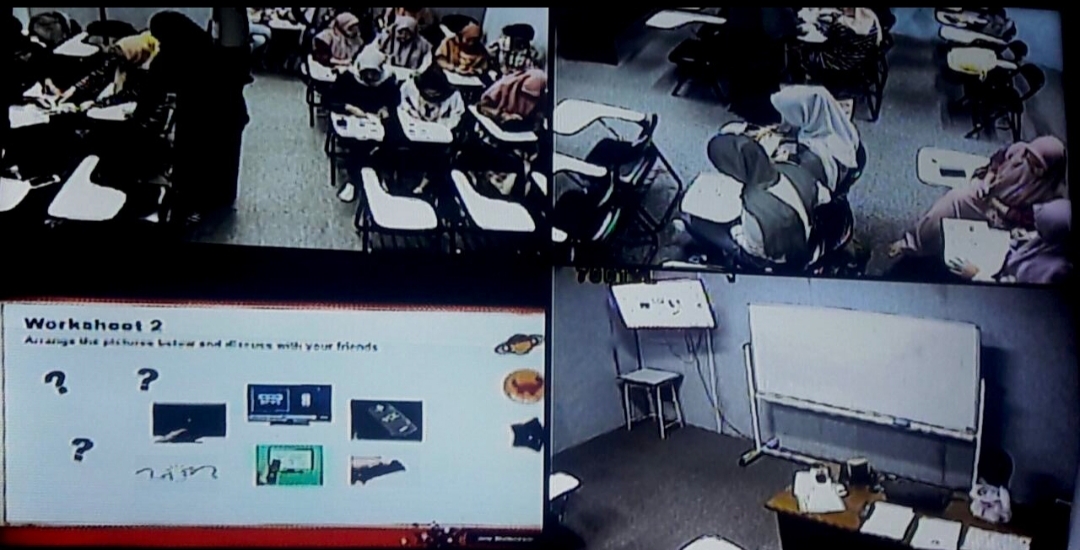EFL students' epistemic beliefs and their relations to critical thinking and reading achievement
DOI:
https://doi.org/10.21070/jees.v6i2.1367Keywords:
epistemic beliefs, critical thinking, reading achievementAbstract
One of the key points of reading comprehension is epistemic beliefs. Epistemic beliefs can be explained as students’ determination of way of learning. Epistemic beliefs’ relation with critical thinking and reading achievement has not yet been clarified. The study has the aim to explore the relationship between the epistemic beliefs’ of students to their critical thinking and reading achievement. The method of the study is correlational. The participant of the research is 102 students from the 2019 batch of the English Language Education Program of reading comprehension class, A-E class in Universitas Brawijaya. The participants helped to fill the questionnaire. The researcher used SPSS to analyst the questionnaire that has been filled by the participants to know the result of the research. The result of SPSS’s analysis showed that between epistemic beliefs and critical thinking, there is a very strong correlation and between epistemic beliefs and reading achievement, there is a strong correlation. Based on the result of the correlation from SPSS’S analysis, it can be known that there is a close relation between epistemic beliefs, critical thinking, and reading achievement. If the students have high epistemic beliefs, they will have high critical thinking and reading achievement
HIGHLISGHTS:
- Epistemic beliefs are very related to the critical thinking and reading
achievement of students. - The higher the level of epistemic beliefs, the better the critical thinking of
students. - The higher the level of epistemic beliefs, the better the reading achievement of
students.
Downloads
References
Aditomo, A. (2016). Epistemic Beliefs and Academic Performance Across Soft and Hard Disciplines in The First Year of College. Journal of Further and Higher Education. doi:10.1080/0309877X.2017.1281892.
Arikunto, S. (2006). Prosedur Penelitian Suatu Pendekatan Praktik. Jakarta: Rineka Cipta.
Astuti, C. D., Sumantri, M. S., and Boeriswati, E. (2018). The Relationship of Motivation and Critical Thinking with the Ability to Read Comprehension. American Journal of Educational Research. American Journal of Educational Research, 2018, Vol. 6, No. 7, 1005-1008. doi: 10.12691/education-6-7-17.
Berding, F., Rolf-Wittlake, K., and Buschenlange, J. (2017). Impact of Different Levels of Epistemic Beliefs on Learning Processes and Outcomes in Vocational Education and Training. Word Journal of Education. ResearchGate. https://doi.org/10.5430/wje.v7n3p103.
Braten, I., Stromso, H. I., and Feguson, L. (2016). The Role of Epistemic Beliefs in The Comprehension of Single and Multiple Text. ResearchGate.
Choung, H., Newman, T. P., and Stenhouse, N. (2020). The Role of Epistemic Beliefs in Predicting Citizens Interest and Engagement with Science and Technology. International Journal of Science Education, Part B. https://doi.org/10.1080/21548455.2020.1774094.
Cottrell, S. (2011). Critical Thinking Skills: Effective Analysis, Argument, and Reflection. Macmillan International Higher Education.
Creswell, J. W. (2012). Educational Research: Planning, Conducting, and Evaluating Quantitative and Qualitative Research (Fourth Edition). Boston: Pearson Education. The Media Monkey
Emaliana, I. and Rahmiati, I. I. (2019). EFL Students’ Epistemic Beliefs, Learning Strategies, and Online Learning Engagement: Exploring Possible Relationship. ISoLEC Proceedings 2019. https://doi.org/10.21776/ub.Educafl.2019.002.02.05.
Emaliana, I., Widiati, U., Latief, M. A., and Suharmanto. (2017). Causal Relationship amongst Epistemic Beliefs, Motivations, and Strategies Use in Reading for EFL Students. Arab World English Journal. https://dx.doi.org/10.24093/awej/vol8no2.27.
Ghufron, M. N. and Suminta, R. R. (2020). Epistemic Beliefs on Field-Dependent and Field Independent Learning Style. Cakrawala Pendidikan. https://doi.org/10.21831/cp.v39i3.23800.
Greene, J. A. and Yu, S. B. (2016). Educating Critical Thinkers: The Role of Epistemic Cognition. Policy Insights from The Behavioral and Brain Sciences. https://doi.org/10.1177/2372732215622223.
Hyytinen, H., Holma, K., Tooom, A., Shavelson, R. J., and Lindblom-Ylanne, S. (2014). The Complex Relationship between Students’ Critical Thinking and Epistemological Beliefs in The Context of Problem Solving. Frontline Learning Research. doi: 10.14786/flr.v2i4.124.
Lee , W. W. S., and Chan, C. K. K. (2014). Identifying and Examining Epistemic Beliefs among College Students in Hong Kong. Asia Pacific Edu Res. https://doi.org/10.1007/s40299-014-0206-1.
Lonka, K., Ketonen, E., and Vermunt, J. D. (2020). University Students’ Epistemic Profiles, Conceptions of Learning, and Academic Performance. Higher Education. https://doi.org/10.1007/s10734-020-00575-6.
Lupo, S., Jang, B. G., and McKenna, M. (2017). The Relationship between Reading Achievement and Attitudes Toward Print and Digital Texts in Adolescent Readers. Literacy Research: Theory, Method. and Practice. https://doi.org/10.1177/2381336917719254.
Mateos, M., Sole, I., Martin, E., Castells, N., Cuevas, I., and GonzaleZ-Lamas, Y. J. (2016). Epistemological and Reading Beliefs Profiles and Their Role in Multiple Text Comprehension. doi: 10.14204/ejrep.39.15058.
Muis, K. R., Chevrier, M., Denton, C. A., and Losenno, K. M. (2021). Epistemic Emotions and Epistemic Cognition Predict Critical Thinking About Socio-Scientific Issues. Frontiers in Education. doi: 10.3389/feduc.2021.669908. https://doi.org/10.3389/feduc.2021.669908.
Muliawati, I. (2017). Reading Comprehension Achievement: A Comparative Study between Science and Social Science Students. Studies in English Language Education Journal. doi: 10.24815/siele.v4i1.7007.
Rahmiati, I., I., Emaliana, I., Khoirunnisa, R., Ju, S. B., and Adi, S. S. (2019). EFL Epistemic Beliefs, Writing Apprehension, Writing Strategies, Writing Performance: Exploring Possible Relationships. European Union Digital Library. http://dx.doi.org/10.4108/eai.23-3-2019.2284928.
Roohr, K., Olivera-Aguilar, M., Ling, G., and Rikoon, S. (2019). A Multi-level Modeling Approach to Investigating Students’ Critical Thinking at Higher Education Institutions. Assessment & Evaluation in Higher Education. https://doi.org/10.1080/02602938.2018.1556776.
Sarwono, J. (2006). Metode Penelitian Kuantitatif &Kualitatif. Yogyakarta: Graha Ilmu
Spray, E., Scevak, J., and Cantwell, R. (2013). Personal Epistemological and Metacognitive Awareness in First Year
Preservice Education Students. Australian Journal of Educational & Developmental Psychology.
Tanzeh, A. (2011). Metodologi Penelitian Praktis. Yogyakarta: Teras.
Wahyuni, S., Miarsyah, M., Adisyahputra. (2018). Achievement Motivation Critical Thinking Skills, and Reading Comprehension Correlation with Scientific Literacy among Senior High School Students. Jurnal Pendidikan Sains.

Published
How to Cite
Issue
Section
License
Copyright (c) 2021 Aidha Azizah Amatullah, Ive Emaliana, Esti Junining

This work is licensed under a Creative Commons Attribution 4.0 International License.







